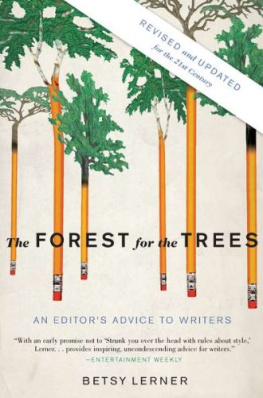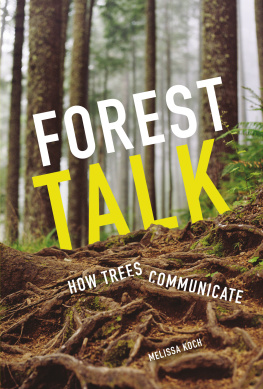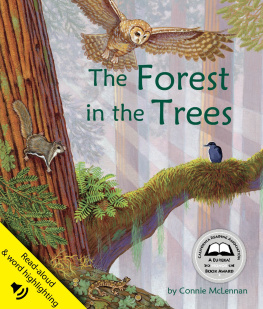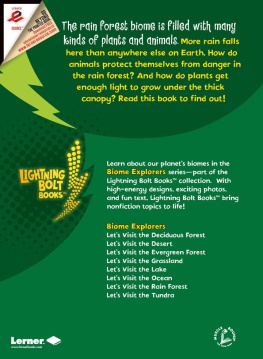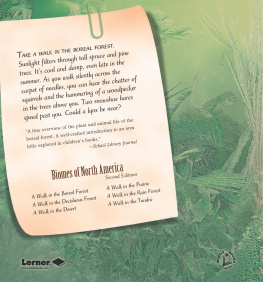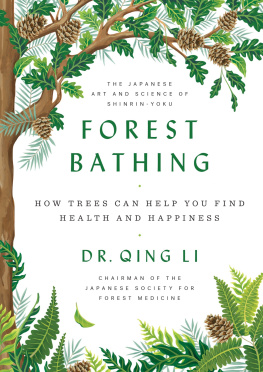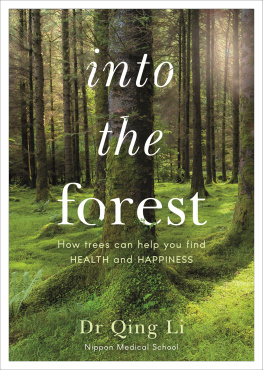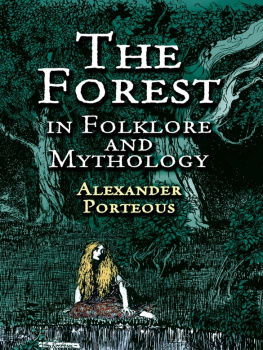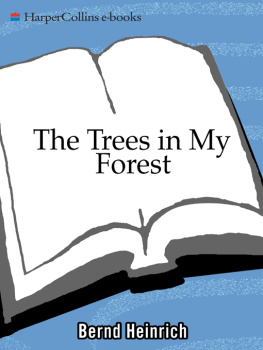Betsy Lerner - The Forest for the Trees: An Editors Advice to Writers
Here you can read online Betsy Lerner - The Forest for the Trees: An Editors Advice to Writers full text of the book (entire story) in english for free. Download pdf and epub, get meaning, cover and reviews about this ebook. year: 2010, publisher: Penguin Group USA, genre: Art. Description of the work, (preface) as well as reviews are available. Best literature library LitArk.com created for fans of good reading and offers a wide selection of genres:
Romance novel
Science fiction
Adventure
Detective
Science
History
Home and family
Prose
Art
Politics
Computer
Non-fiction
Religion
Business
Children
Humor
Choose a favorite category and find really read worthwhile books. Enjoy immersion in the world of imagination, feel the emotions of the characters or learn something new for yourself, make an fascinating discovery.
- Book:The Forest for the Trees: An Editors Advice to Writers
- Author:
- Publisher:Penguin Group USA
- Genre:
- Year:2010
- Rating:5 / 5
- Favourites:Add to favourites
- Your mark:
- 100
- 1
- 2
- 3
- 4
- 5
The Forest for the Trees: An Editors Advice to Writers: summary, description and annotation
We offer to read an annotation, description, summary or preface (depends on what the author of the book "The Forest for the Trees: An Editors Advice to Writers" wrote himself). If you haven't found the necessary information about the book — write in the comments, we will try to find it.
Betsy Lerner: author's other books
Who wrote The Forest for the Trees: An Editors Advice to Writers? Find out the surname, the name of the author of the book and a list of all author's works by series.
The Forest for the Trees: An Editors Advice to Writers — read online for free the complete book (whole text) full work
Below is the text of the book, divided by pages. System saving the place of the last page read, allows you to conveniently read the book "The Forest for the Trees: An Editors Advice to Writers" online for free, without having to search again every time where you left off. Put a bookmark, and you can go to the page where you finished reading at any time.
Font size:
Interval:
Bookmark:

CONTENTS
Introduction
PART I. WRITING
chapter i The Ambivalent Writer
chapter 2 The Natural
chapter 3 The Wicked Child
chapter 4 The Self-Promoter
chapter 5 The Neurotic
chapter 6 Touching Fire
PART II. PUBLISHING
chapter 7 Making Contact: Seeking Agents
and Publication
chapter 8 Rejection
chapter 9 What Editors Want
chapter 10 What Authors Want
chapter 11 The Book
chapter 12 Publication
INTRODUCTION
I NEVER DREAMED OF BECOMING AN EDITOR. Like many English majors, I spent much of my time in college reading novels and poetry, never quite fixing my attention on how I might parlay those interests into a job. In the final months of college, I went to the Career Placement Office, only to discover that I should have signed up in my junior year for the ongoing programs and job fairs. When I visited the head of the English Department to explore the possibility of graduate school, he stared at me in disbelief: Applications had been filled out in the fall.
During those frantic months of trying to secure employment, I met with the daughter of one of my mother's friends, an editor at Putnam. I put on my only dress for the interview, a cotton plaid A-line jumper with a rattan belt, and rode my bike to the publisher's offices on Madison Avenue. To calm my nerves before going in, I wolfed down a Haagen-Dazs ice cream cone. In the elevator, I realized the chocolate had stained my jumper. The editor's office was lined with shelves of books, their jackets face out. Most had huge type embossed in silver and gold. I didn't recognize a single title. Her desk was tidy, but the floor was piled high with manuscripts. I could tell that she was rushed, that her mother had put her up to this meeting, and I sat there somewhat lumpen and extremely ill prepared. After some pleasantries, she started the interview proper by asking whether I was interested in hardcover or paperback publishing. I looked nervously back and forth between her and her bookshelves, as if I were still in school and there was a chance that someone else might answer. Hardcover or paperback ? Was there a difference? I asked.
Thirty resumes and a half-dozen interviews later, I had failed the typing test at every major publishing house in New York that would see me.
I wound up taking the only job I was offered, as a receptionist in the library of a large financial institution. I probably don't have to point out that it paid twice as much as an entry-level publishing position. More important, it required no typing. In a few months' time, I was promoted to corporate file coordinator, which was every bit as Kafkaesque as it sounds. I spent most of my lunch hours endlessly browsing the dusty shelves a few blocks south at the Gotham Book Mart, a tiny shop wedged among the diamond dealers of Forty-seventh Street. I also picked up the monthly Poetry Calendar there, a broadsheet with tiny print that listed readings for the coming weeks, and scanned the bulletin board bursting with notices of all matters literary. It was there I found a small advertisement for a poetry workshop. Enrollment was limited, and six poems had to be submitted for the leader's review by the following Monday. I worked feverishly all weekend, selecting and revising the poems. When I learned, a few weeks later, that I had been accepted, I felt for the first time in a very long while that things just might work out for me.
That workshop, as it turned out, was a pivotal life experience. The teacher, Jorie Graham, then a young woman with only one book to her credit, changed the way I allowed myself to feel about writing. Until then, my writing had been a secret, almost shameful act. But during those Monday-night sessions among fellow poets I felt transformed, listening intently as Graham passionately critiqued our work and described her own fledgling efforts as a writer. I will never forget her exquisite recitation; she would hold the final syllable before a line break for a breath longer than anticipated or rush one line into the next to give it urgency and life. A year later, with a sheaf of twenty full-length poems, I applied to graduate school for an MFA in poetry.
To say that attending graduate school is the end of innocence is not an exaggeration. Once again I was wholly unprepared for what would befall me there or for the characters I would meet along the way. But for all the indignities suffered around the workshop table, one thing was very clear: I discovered that I was good at suggesting changes that could improve a fellow student's poem, whether it meant moving one stanza from the middle to the beginning, deleting a line altogether, or sometimes just changing a title. In my final year I became editor of the literary magazine, and I found that the pieces I liked best, believed had the most merit, were usually those that stirred debate or aroused strong feeling, whether or not we included them in our pages. I didn't know it then, but I was becoming an editor.
When I was granted an internship at Simon & Schuster in my final semester, my publishing career began in earnest. I remember my first day on the job. I had arrived early and was sitting in the reception area when a young woman came flying through, waving a sheet of paper and screaming, "Number six, number six!" The next thing I knew, she and an older woman were grabbing each other's elbows and jumping up and down, still screaming. I later learned that the older woman was the publisher and that one of their books had hit the bestseller list. I wondered if anything would ever make me that excited. One short year later, I caught a glimpse of myself running down that same corridor screaming with glee, an advance bestseller list in hand. A book my boss had been working on for many years, which I had helped in its final production stages, had hit the list. I had found my passion.

When I entered the business, I believed that writers were exalted beings. How else could they capture in a single phrase the emotional truth of a lifetime or render a scene that seemed more lifelike than life? How else could they risk their lives and livelihoods on a string of sentences, baring their souls in a world ever more hostile to artists and art? I was in awe of all writers, even those with less than perfectly realized works.
They had broken through, and somewhere books existed with their names on them. Of course, it didn't take long for those pedestals to crumble.
As an editor, I was both privy to and subjected to every aspect of my authors' lives. And the more I worked with writers, the more I found myself thinking about the characteristics that contributed to any given writer's success or failure. I saw mediocre writers who were brilliant at networking and superb writers who couldn't part with their pages. Some seemed blessed with the confidence of entitlement, others cursed with paralyzing insecurities. I saw their defenses and fears, their hopes and ambitions. Very soon I was able to recognize which writers would hunker down for the long haul, revising their texts over and over, and which felt that simply producing a manuscript should be enough to secure a publishing contract. I also began to understand the cyclical nature of the publishing business, the brutality of the media, and the vagaries of the marketplace. But more than anything else, I grew close to my authors and saw firsthand how they soldiered on in their lonely work.
Before I entered publishing, I believed, like most people, that the life of a writer was to be envied. As one of my heroes, Truman Capote, wrote, "When God hands you a gift, he also hands you a whip." Now I understand that writers are a breed apart, their gifts and their whips inextricably linked. The writer's psychology is by its very nature one of extreme duality. The writer labors in isolation, yet all that intensive, lonely work is in the service of communicating, is an attempt to reach another person. It isn't surprising, then, that many writers are ambivalent, if not altogether neurotic, about bringing their work forward. For in so doing, a writer must face down that which he most fears: rejection. There is no stage of the writing process that doesn't challenge every aspect of a writer's personality. How well writers deal with those challenges can be critical to their survival.
Font size:
Interval:
Bookmark:
Similar books «The Forest for the Trees: An Editors Advice to Writers»
Look at similar books to The Forest for the Trees: An Editors Advice to Writers. We have selected literature similar in name and meaning in the hope of providing readers with more options to find new, interesting, not yet read works.
Discussion, reviews of the book The Forest for the Trees: An Editors Advice to Writers and just readers' own opinions. Leave your comments, write what you think about the work, its meaning or the main characters. Specify what exactly you liked and what you didn't like, and why you think so.

